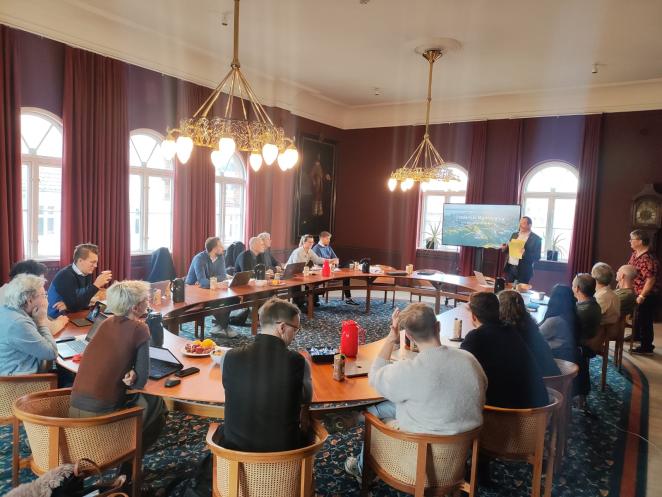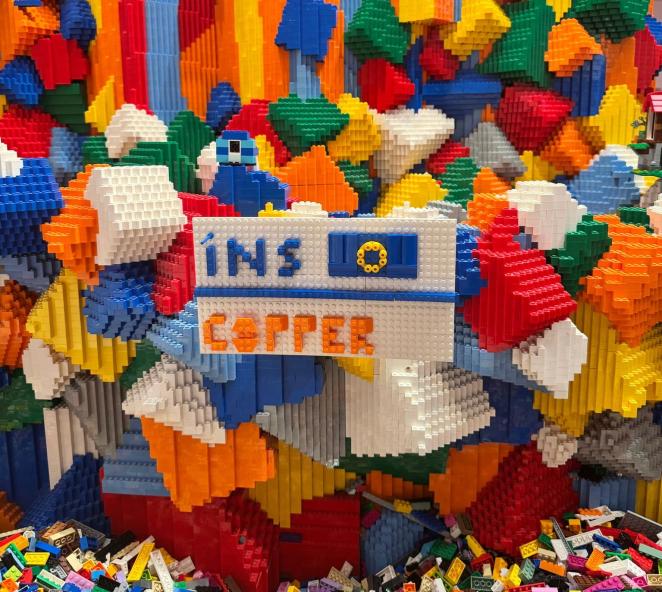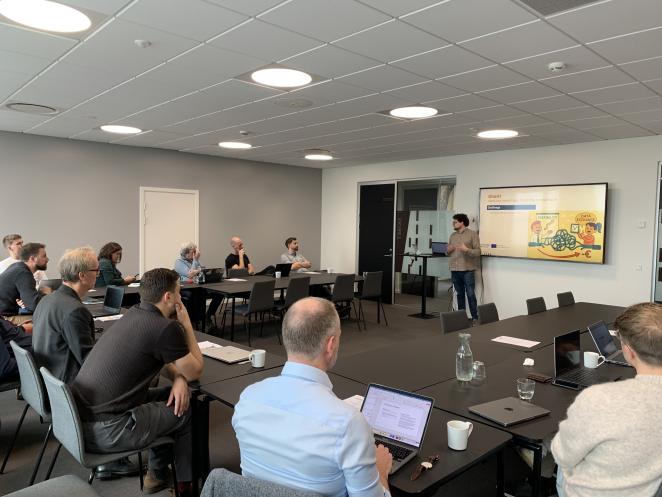In October 2025, the COPPER partnership, co-funded by the European Union , gathered for its fourth partner meeting in Fredericia, Denmark.
The two-day event on the 29th and 30th of October 2025 marked the project's halfway point , bringing together cities, academic institutions, and partners to review significant progress on pilot projects and accelerate the urban energy transition through digital tools and establishing the necessary political and governance frameworks for Local Energy Action Plans (LEAPs).

Guest Speaker Highlights and Project Guidance
The meeting included presentations from guest speakers, Christian Bro (Mayor of Fredericia) and Claus Urup (Department Manager, TREFOR). Mayor Christian Bro highlighted Fredericia’s progressive initiatives, such as being the first city in Denmark where citizens can travel by bus for free. He noted the city is seeking to leverage a key national asset—one of Denmark's two industrial biorefineries—and a key regional asset—the heat network of the Triangle Region—for its energy transition. Mayor Bro stressed the crucial need for smaller cities to collaborate to gain political visibility, pool resources, and secure support for critical infrastructure investments.
"Innovative cities such as Fredericia need to pro-actively work with national authorities to create policies and regulations that allow us to deliver the energy transition" he stated.

This perspective was complemented by Claus Urup, Head of Grid Planning at Trefor , the regional Distribution System Operator (DSO) for Fredericia. Urup forecasted a substantial two-to-threefold growth in power demand, primarily driven by the electrification of mobility. He emphasized the collaboration required to manage this growth: "As a DSO, we work closely with cities such as Fredericia to explore how to deal with that". A key challenge identified by the DSO was the lack of technical capacity in digitalization or operating advanced grid management solutions.
In addition, Interreg North Sea's project officer, Femke Boersma, joined the partner meeting. She reminded partners about reporting and how to execute the work packages and activities. She noted that COPPER was presented as a good example by an Interreg steering Committee member at a political event and highlighted the importance of communicating the COPPER message and sharing project learnings
Pilot Progress and LEAP Updates
The cities shared their progress on the pilots and LEAPs.
Ghent (BE) is working on its first-ever V2G (Vehicle-to-Grid) tender. Meetings between Ghent and its DSO have started, focusing on both the strategic and operational level.
Antwerp (BE) is working on initiatives including a large-scale heat pump and a mobile charging station. Collaboration with the DSO is utilizing a digital twin model to simulate multiple scenarios.
Trondheim (NO) joined the project with a pilot focused on sustainable energy in its port area. The goal for the Brattøra demo area is to create +5 MW for shorepower, alongside charging facilities for cruise ships, e-buses, and heavy-duty vehicles.
Dordrecht (NL) finalized the creation of its energy cooperative and is starting a tender for a solar park combined with a charging hub for trucks. They have "good and regular contact" with the DSO.
Bremen (DE) has now created 9 new charging stations for their e-car sharing fleet. A study indicates that car sharing has a bigger impact on CO2 reduction per euro invested than electrification of the car fleet.

Looking Ahead to the "European Conference on City Energy”
The next partner meeting is scheduled for March 19-20, 2026, in Ghent, adjacent to Europe's first political conference on city energy. Ghent will host the European Conference on City Energy on March 18, 2026.
